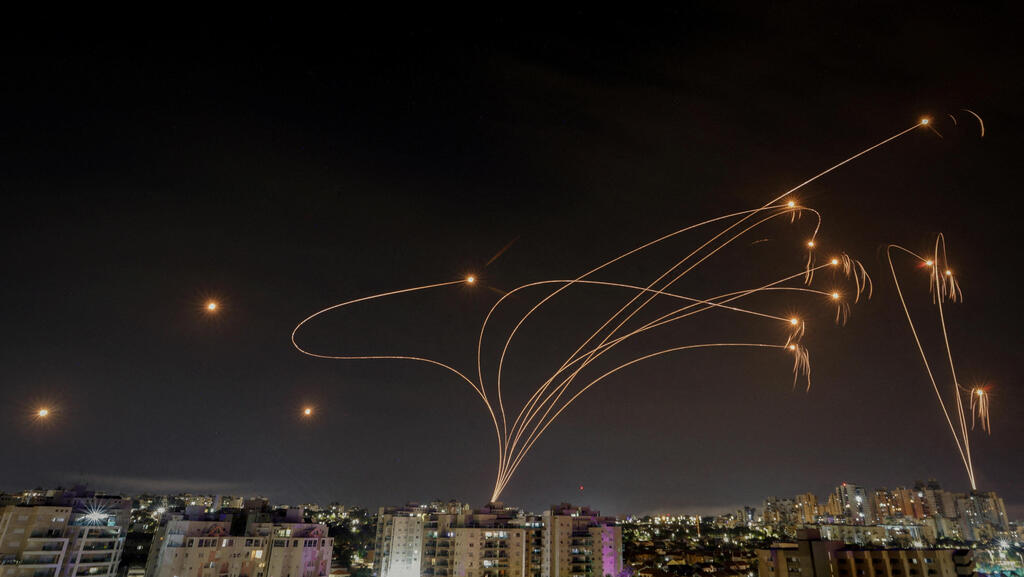
"David’s Sling and Iron Dome intercepted more targets than all other air defense systems combined in the past 50 years"
Rafael CEO Yoav Turgeman was speaking after the company revealed a 36% increase in its sales in the third quarter to NIS 4.53 billion, while net profit amounted to NIS 189 million.
For over a year and two months, the David’s Sling and Iron Dome air defense systems have been operating tirelessly to intercept missiles and rockets targeting Israel, primarily from Lebanon and Gaza. The constant need for these systems is clearly reflected in Rafael’s financial results released last week. In Q3 2024, the company reported sales of NIS 4.53 billion ($1.25 billion), a 36% increase compared to the same period last year. Rafael's net profit in the quarter reached NIS 189 million ($52 million).
Between January and September 2024, the company’s sales climbed to NIS 12.3 billion ($3.4 billion), representing a year-over-year increase of more than 30%. During the same period, net profit surged by 65%, totaling over NIS 550 million ($152 million). Rafael’s order backlog grew significantly, reaching approximately NIS 60 billion ($16.6 billion) by the third quarter—an increase of 40% compared to last year.
Rafael attributed much of this growth to heightened Ministry of Defense contracts amidst the ongoing conflict, reaffirming its role as a critical supplier of air defense systems. Among the significant orders was a $2 billion contract awarded jointly to Rafael and Elbit Systems for the Iron Beam, a high-power laser defense system. Rafael is the lead contractor on this project, receiving the majority of the funding. According to the Ministry of Defense, the laser system will be delivered to the Air Force within a year for operational use. This cutting-edge system is expected to lower the cost of intercepting short-range rockets and UAVs from $50,000 per Iron Dome interceptor to just a few shekels.
In addition to the Iron Beam, Rafael is advancing a mobile laser system designed to protect infantry and armored units on the battlefield from threats like mortar bombs, rockets, and UAVs. The company’s development efforts come amidst mounting challenges, including explosive drones launched at Israel from multiple fronts, particularly Lebanon. These drones, with their small size, slow speed, and low radar signatures, have posed significant detection and identification difficulties.
“UAVs are targets for our laser system, which will direct a powerful beam at them at the speed of light,” said Rafael CEO Yoav Turgeman. However, he acknowledged that successfully intercepting drones with lasers requires enhanced real-time detection and identification capabilities—a gap that has complicated defense operations thus far.
Turgeman emphasized that despite the introduction of the Iron Beam, the demand for the Iron Dome will remain high. "The David’s Sling and Iron Dome systems have intercepted more targets than all other air defense systems worldwide combined over the past 50 years. These are extraordinary performances that have proven their efficiency and reliability in extended combat scenarios,” he stated. Addressing concerns about interceptor shortages, he added, “We made sure that there would be no shortage of interceptors for the Iron Dome. Everything requested by the defense establishment has been provided.”
Rafael’s Q3 results highlight its narrowing sales gap with Israel’s two largest defense companies, IAI and Elbit Systems. While Rafael’s quarterly sales trailed IAI’s $1.54 billion and Elbit’s $1.74 billion, its growth trajectory has been significant. Unlike IAI and Elbit, which are heavily export-oriented, Rafael directs roughly half of its sales to the IDF. In Q3 2024, 56% of Rafael’s sales—amounting to NIS 2.52 billion ($700 million)—were to the Israeli market, with Asia and Europe each accounting for 19%, and the remainder distributed across the Americas and other regions.














